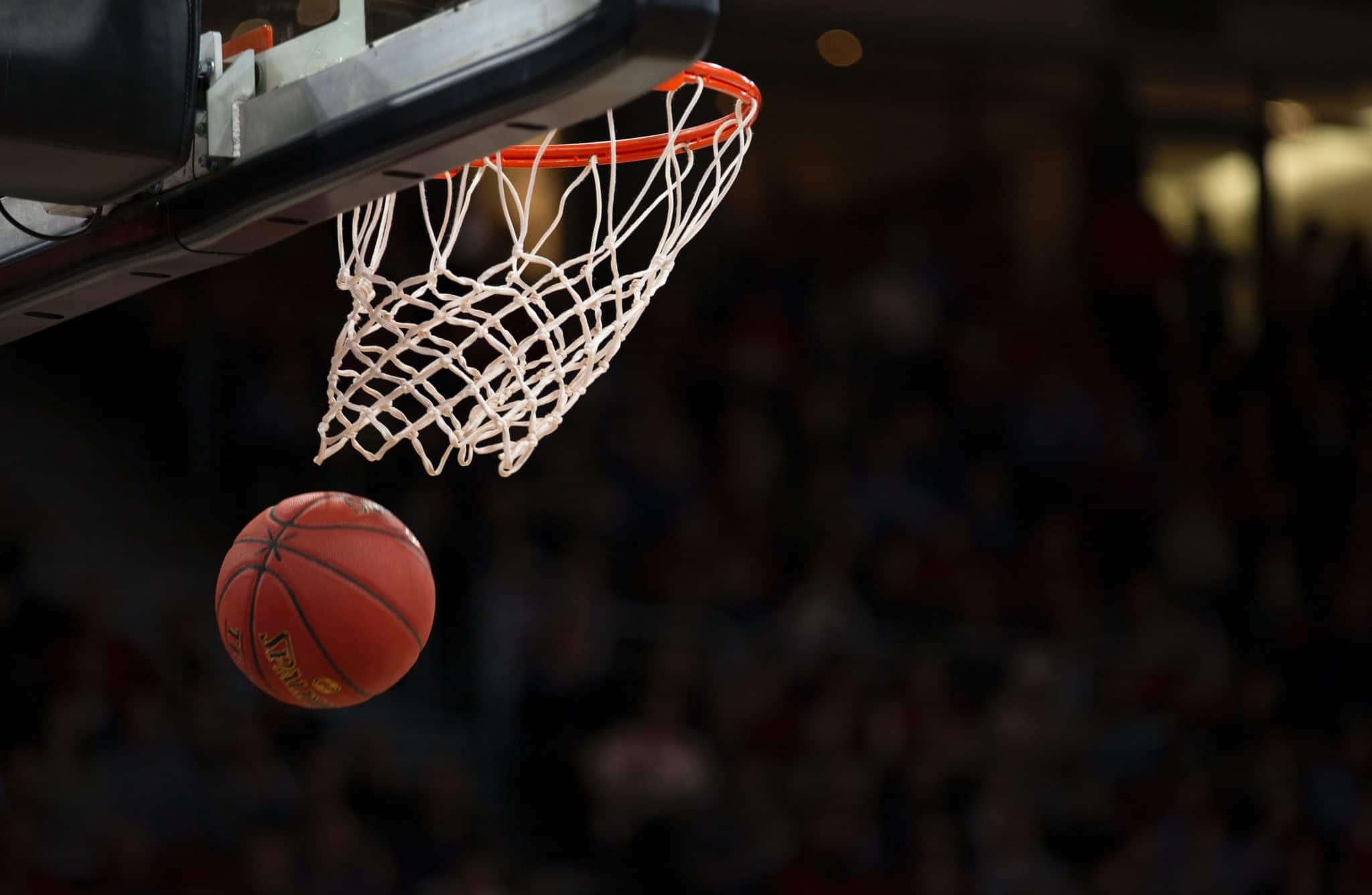
Ben Gantt is a student at Harvard Law School and a member of the Labor and Employment Lab.
On Thursday morning, NBA player Terry Rozier, along with former NBA player and coach Damon Jones, were arrested as part of a larger federal crackdown into illegal sports betting. An unsealed federal indictment charges Rozier and Jones with providing non-public information that was subsequently used to place illegal bets. These arrests follow in the wake of another high-profile scandal involving former NBA player Jontay Porter, who pled guilty to conspiracy to commit wire fraud and received a lifetime ban from the NBA after manipulating his own performance to impact sports betting outcomes. Separately from Rozier and Jones’s arrests, several other individuals — including Portland Trail Blazers head coach Chauncey Billups — were also arrested on Thursday morning and charged with involvement in illegal poker games.
At the time of writing, many important details on the arrests have yet to emerge. In particular, the merits of these charges are not yet clear. But in any event, Rozier and Jones’s arrests — like Porter’s guilty plea — raise serious concerns about sports betting’s impact on professional basketball.
The floodgates for sports betting opened in 2018 when the Supreme Court decided Murphy v. NCAA. This case struck down the Professional and Amateur Sports Protection Act, which had largely banned sports betting since 1992. In the wake of Murphy, 39 states have legalized sports betting in some form. A recent survey showed that nearly one-third of all Americans placed a sports bet in 2024.
Sportsbooks seek to engage fans by allowing them to bet not only on team performance, but on individual players’ statistics as well. These bets on player performance — known as “prop bets” — raise two unique concerns. First, players can more easily manipulate the outcomes of prop bets than they can affect their team’s overall performance. Second, prop bets can exacerbate threats to athletes because aggrieved fans can more easily pin their financial losses on particular players.
In this post, I describe how professional basketball has especially suffered from the rise of prop bets. While legalized sports betting has generated a financial windfall for the NBA and its players, prop bets have both raised concerns about players manipulating their own performances and threatened player safety.
The problems of prop bets, however, extend beyond the NBA. Prop bets have generated harms that impact other professional sports leagues, as well as the NCAA. And while private contracting and state legislation are important, they are insufficient to address the larger problems of prop bets. Instead, federal legislation banning prop bets is necessary.
A Case Study of Prop Bets: the NBA
After Murphy, the NBA, like many sports leagues, entered into several sports betting partnerships. These have bolstered the league’s revenues. According to one estimate, the NBA received approximately $167 million in revenue from sports betting partnerships during the 2023-2024 NBA season alone. These partnerships with companies like FanDuel and DraftKings also drive fan viewership, thereby increasing the value of the league’s media deals with its broadcast partners.
NBA players, like the league, benefit from legalized sports betting. The collective bargaining agreement between the NBA and the National Basketball Players Association (NBPA) provides players a cut of all “Basketball Related Income,” including profits that the league derives from its sports betting agreements.
But there is a darker side to these partnerships. First, legalized sports betting has raised concerns about the integrity of professional basketball. As Rozier’s arrest and Porter’s guilty plea demonstrate, the NBA has had to reckon with the possibility that players might manipulate their own performances to influence sports betting outcomes.
But prop bets raise a second concern, which has garnered relatively little attention: they adversely affect NBA player safety. NBA players increasingly face death threats, racial slurs, and requests for money from disgruntled fans who have lost bets. Of course, players faced fan abuse and harassment long before the legalization of sports betting. And part of the problem can be attributed to the rise of social media, which has allowed disgruntled fans to easily air their grievances.
Anecdotal accounts from NBA players, however, suggest that sports betting has exposed them to new levels of harassment and abuse. An anonymous poll from earlier this year surveyed nearly a third of the league’s players, asking them the following question: “Are the NBA’s gambling partnerships good or bad for the league, and why?” 46 percent responded that the partnerships are bad, 34 percent said that they are good, 12 percent said they were “somewhere in the middle,” and 8 percent were undecided. One player noted that the league’s partnerships “expose[] us to people that think they can say anything they want to because they bet their money on us.” And some players cite prop bets as a particular source of trouble. One player, for example, notes “I hate when I’m walking to the court, and all I hear is ‘I need 10 rebounds. I need 15 points. I need this. I need that.”
The Case for a National Ban on Prop Bets
Some risks of prop bets can be mitigated through private contracting. NBA and NBPA representatives, for instance, have made statements demonstrating tentative support for further restrictions on prop bets. Should the NBA and NBPA choose to do so, they could exert collective pressure on sportsbooks to restrict prop bets. Such a collective effort would likely prove successful, since the NBA provides much of the real-time data that sportsbooks use.
The problem, however, is that concerns about prop bets are not confined to the NBA. To the contrary, a wide range of sports leagues have been forced to reckon with the negative consequences of prop bets. Two MLB pitchers are under investigation after bettors placed large wagers on the outcomes of individuals pitches. The NFL and NHL have actively petitioned certain sportsbooks to limit the availability of certain prop bets. And NCAA President Charlie Baker asked state officials to ban prop bets, arguing that a ban is necessary “to protect student-athletes and to protect the integrity of the game.” As of August, thirteen states have enacted bans on prop bets in college sports.
Moreover, sports leagues and athletes don’t operate in a vacuum; the existence of prop bets has larger public health consequences. Prop bets rapidly expand the “menu” of bets available to the public, especially since sportsbooks often allow them to be placed “live,” that is, during a game. As one expert notes, this renders “every single moment a betting opportunity” in a way that can drive addiction.
In short, prop bets pose risks that implicate collegiate sports, professional sports, and the general public. Private contracting is insufficient to address a problem of this scope. Part of the insufficiency of private contracting can be attributed to a collective action problem: while leagues might influence particular sportsbooks to restrict prop bets, this could merely steer bettors to other platforms that offer them. Thus, limiting prop bets requires all sportsbooks to forgo prop bets, which will likely require legislation.
State legislation is also inadequate. Some state-level proposals, such as Ohio Governor Mike DeWine’s proposed ban on prop bets, are steps in the right direction. But threats to player safety and the integrity of professional and collegiate sports will remain so long as any state permits prop bets.
What is necessary, accordingly, is a national ban on prop bets that covers both collegiate and professional sports. The most notable federal proposal, Congressman Paul Tonko’s SAFE Bet Act, would ban prop bets in college athletics. But considering the aforementioned risks to professional athletes, national legislation should ban prop bets on professional sports as well.
Conclusion
In the wake of Murphy, sports betting is likely here to stay. The sports betting industry, which saw revenues exceeding $13 billion in 2024, has accrued significant political capital. But this should not preclude federal lawmakers from placing guardrails on the industry’s growth. A national ban on prop bets, which would improve player safety and the integrity of professional and collegiate sports, offers a logical starting point.










Daily News & Commentary
Start your day with our roundup of the latest labor developments. See all
January 9
TPS cancellation litigation updates; NFL appeals Second Circuit decision to SCOTUS; EEOC wins retaliation claim; Mamdani taps seasoned worker advocates to join him.
January 8
Pittsburg Post-Gazette announces closure in response to labor dispute, Texas AFT sues the state on First Amendment grounds, Baltimore approves its first project labor agreement, and the Board formally regains a quorum.
January 7
Wilcox requests en banc review at DC Circuit; 9th Circuit rules that ministry can consider sexual orientation in hiring decisions
January 5
Minor league hockey players strike and win new deal; Hochul endorses no tax on tips; Trump administration drops appeal concerning layoffs.
December 22
Worker-friendly legislation enacted in New York; UW Professor wins free speech case; Trucking company ordered to pay $23 million to Teamsters.
December 21
Argentine unions march against labor law reform; WNBA players vote to authorize a strike; and the NLRB prepares to clear its backlog.